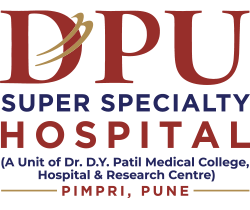Debunking Myths About Organ Donation: What the Research Says

Have you ever hesitated to sign up as an organ donor because of something you heard or read? Perhaps you’ve wondered if your religion permits it or if doctors might not try as hard to save your life if you’re registered as a donor. These are just a couple of the many myths surrounding organ donation. But what does the research actually say?
In this blog, we'll debunk common myths using evidence-based research and highlight the role of organ donation centres in Pune in promoting accurate information and facilitating the donation process.
Myth 1: Organ Donation is a Complex Process
Some people believe that organ donation involves a lot of paperwork and complicated procedures, which might deter them from registering. In reality, becoming an organ donor is straightforward. Once you register, healthcare professionals handle the donation process, ensuring that it is as smooth and hassle-free as possible.
Myth 2: Organ Donation is Only for Major Organs
Many people believe that organ donation is limited to major organs like the heart, kidneys, or liver. In reality, organ donation encompasses much more than just major organs. Tissues like corneas, skin, bones, and heart valves can also be donated, significantly impacting many lives. This broadens the scope of how donors can help others, making organ donation an even more powerful act of generosity.
Myth 3: I’m Too Old or Unhealthy to Donate
Age and health status do not automatically disqualify someone from being an organ donor. The suitability of organs for donation is determined at the time of death. Medical professionals assess each case individually to decide if organs and tissues are viable for transplant. People in their 70s and 80s have successfully donated organs; even those with certain medical conditions can often donate tissues.
Myth 4: Organ Donation Costs Money for the Donor’s Family
The donor’s family is not responsible for any costs associated with organ donation. The recipient's insurance or organ procurement organisation covers all medical expenses related to the donation process. The family is only responsible for hospital bills incurred before the declaration of death and standard funeral expenses.
Myth 5: Organ Donation Will Mutilate My Body
The organ donation process is performed with the utmost respect and care. Surgeons make precise incisions to remove organs, which are then carefully closed, allowing for an open-casket funeral if desired. Organ donation does not disfigure the body.
Myth 6: Organ Donation is Against Cultural Beliefs
While cultural beliefs vary, education and awareness campaigns have shown that many cultural barriers can be overcome. In many cultures, organ donation is seen as a generous act supporting life's value.
Myth 7: Living Donations are Unsafe
Living donations, such as a kidney or part of the liver, are generally safe and allow donors to live healthy lives post-donation. Rigorous medical evaluations ensure that the donor’s health is not compromised.
Encouraging Informed Decisions
Education and awareness are key to increasing organ donation rates. Dispelling myths with accurate information can help potential donors make informed decisions. Organ donation centres in Pune play a vital role in this educational process, providing resources and support to individuals considering donation. These centres are committed to spreading awareness, addressing concerns, and facilitating the donation process in a transparent and supportive manner.
To encourage informed decisions, it’s important to:
Talk to Family and Friends
Discussing your decision to become an organ donor with loved ones is a crucial step. Their understanding and support are essential, as they may be involved in the decision-making process at the time of donation. Here are some tips for having this conversation:
- Be Open and Honest: Clearly express your reasons for wanting to become an organ donor. Share any personal stories or experiences that influenced your decision.
- Provide Information: Educate your family and friends about the organ donation process, including the benefits and the myths surrounding it. This can help alleviate any concerns they may have.
- Answer Questions: Be prepared to answer questions and address any fears or misconceptions. Providing accurate information can help reassure your loved ones.
- Encourage Dialogue: Create an open environment where family members feel comfortable discussing their views and asking questions. This can foster mutual understanding and support.
Register as a Donor
Signing up with a recognised organ donation registry is a straightforward and impactful step. In India, you can register with the National Organ and Tissue Transplant Organization (NOTTO). Here’s how you can do it:
- Online Registration: Complete the online donor registration form on the NOTTO website. It’s a quick process that officially records your willingness to donate.
- Local Health Organizations: Some hospitals and healthcare providers also offer registration services. You can inquire about this during your regular health check-ups or visits.
- Keep Your Information Updated: Ensure your registration details are current and accurate. If your health status or personal information changes, update your registry profile accordingly.
Stay Informed
Keeping updated on new organ donation and transplantation developments is vital for maintaining confidence in your decision. Awareness of medical advancements can address lingering doubts and fears. Here are ways to stay informed:
- Follow Reputable Sources: Subscribe to newsletters and updates from reputable health organisations such as NOTTO, WHO, and other medical institutions involved in transplantation.
- Attend Workshops and Seminars: Participate in events organised by health organisations and donation centres. These sessions often provide insights into the latest research and innovations.
- Engage in Online Communities: Join forums and social media groups focused on organ donation. These platforms allow you to share experiences, ask questions, and receive support from other donors and recipients.
Conclusion
Organ donation is a noble act that has the power to save lives and provide hope to countless families. By debunking common myths and relying on evidence-based research, we can encourage more people to become donors. The efforts of organ donation centres in Pune are essential in this mission, as they provide accurate information and support to potential donors. Together, we can bridge the gap between organ demand and supply, ensuring that more lives are saved through the generous act of organ donation.








